第251章 Chapter 10(1)
Containing a hint or two concerning virtue, and a few more concerning suspicion Our company, being arrived at London, were set down at his lordship's house, where, while they refreshed themselves after the fatigue of their journey, servants were despatched to provide a lodging for the two ladies; for, as her ladyship was not then in town, Mrs. Fitzpatrick would by no means consent to accept a bed in the mansion of the peer.
Some readers will, perhaps, condemn this extraordinary delicacy, as I may call it, of virtue, as too nice and scrupulous; but we must make allowances for her situation, which must be owned to have been very ticklish; and, when we consider the malice of censorious tongues, we must allow, if it was a fault, the fault was an excess on the right side, and which every woman who is in the self-same situation will do well to imitate. The most formal appearance of virtue, when it is only an appearance, may, perhaps, in very abstracted considerations, seem to be rather less commendable than virtue itself without this formality; but it will, however, be always more commended; and this, Ibelieve, will be granted by all, that it is necessary, unless in some very particular cases, for every woman to support either the one or the other.
A lodging being prepared, Sophia accompanied her cousin for that evening; but resolved early in the morning to enquire after the lady into whose protection, as we have formerly mentioned, she had determined to throw herself when she quitted her father's house. And this she was the more eager in doing, from some observations she had made during her journey in the coach.
Now, as we would by no means fix the odious character of suspicion on Sophia, we are almost afraid to open to our reader the conceits which filled her mind concerning Mrs. Fitzpatrick; of whom she certainly entertained at present some doubts; which, as they are very apt to enter into the bosoms of the worst of people, we think proper not to mention more plainly, till we have first suggested a word or two to our reader touching suspicion in general.
Of this there have always appeared to me to be two degrees. The first of these I chuse to derive from the heart, as the extreme velocity of its discernment seems to denote some previous inward impulse, and the rather as this superlative degree often forms its own objects; sees what is not, and always more than really exists. This is that quick-sighted penetration whose hawk's eyes no symptom of evil can escape; which observes not only upon the actions, but upon the words and looks, of men; and, as it proceeds from the heart of the observer, so it dives into the heart of the observed, and there espies evil, as it were, in the first embryo; nay, sometimes before it can be said to be conceived. An admirable faculty, if it were infallible;but, as this degree of perfection is not even claimed by more than one mortal being; so from the fallibility of such acute discernment have arisen many sad mischiefs and most grievous heart-aches to innocence and virtue. I cannot help, therefore, regarding this vast quick-sightedness into evil as a vicious excess, and as a very pernicious evil in itself. And I am the more inclined to this opinion, as I am afraid it always proceeds from a bad heart, for the reasons I have above mentioned, and for one more, namely, because I never knew it the property of a good one. Now, from this degree of suspicion Ientirely and absolutely acquit Sophia.
A second degree of this quality seems to arise from the head. This is, indeed, no other than the faculty of seeing what is before your eyes, and of drawing conclusions from what you see. The former of these is unavoidable by those who have any eyes, and the latter is perhaps no less certain and necessary a consequence of our having any brains. This is altogether as bitter an enemy to guilt as the former is to innocence: nor can I see it in an unamiable light, even though, through human fallibility, it should be sometimes mistaken.